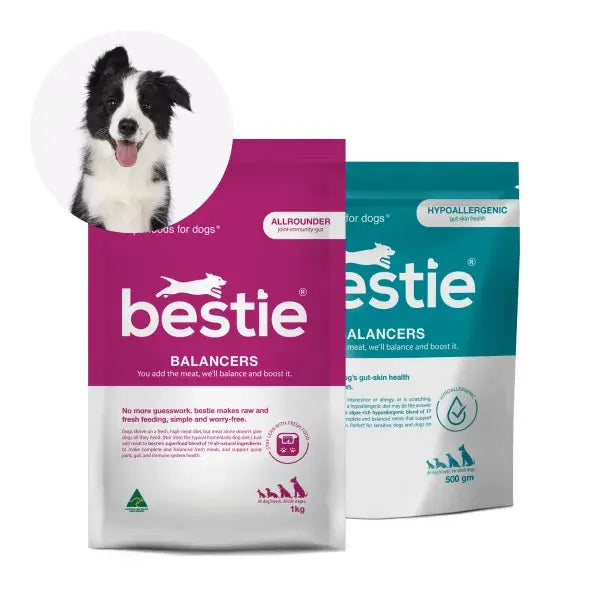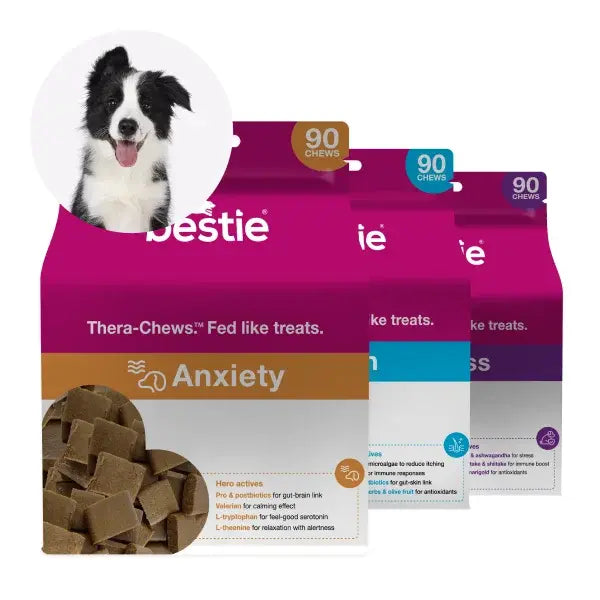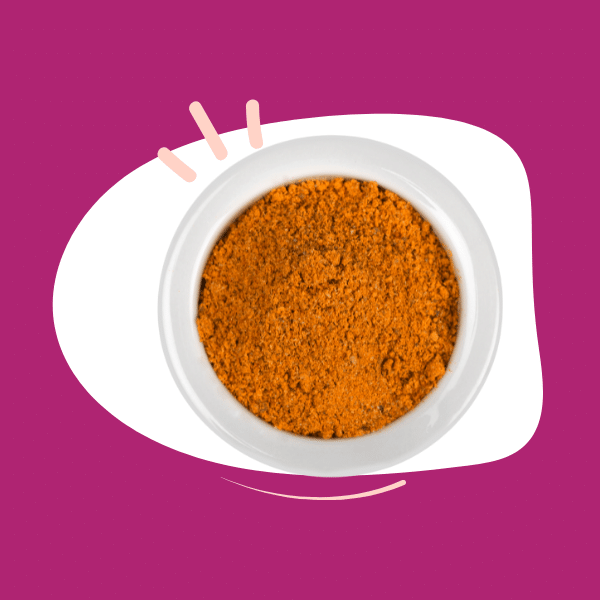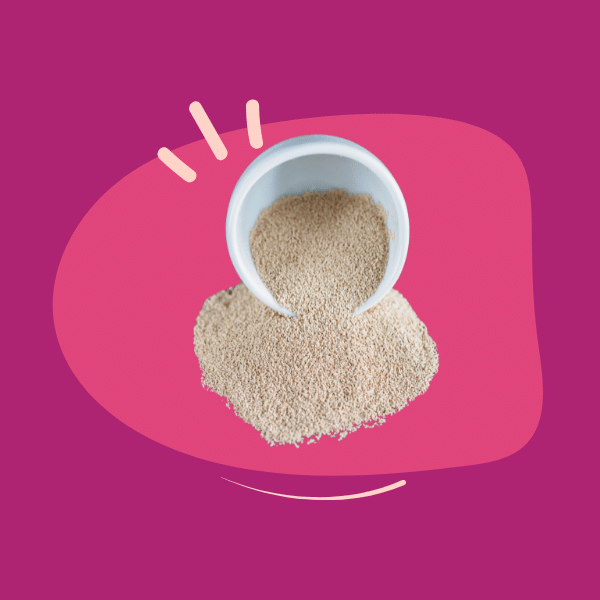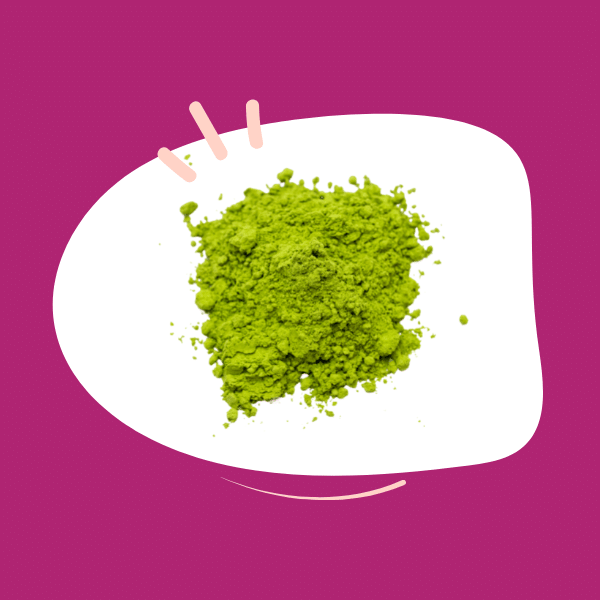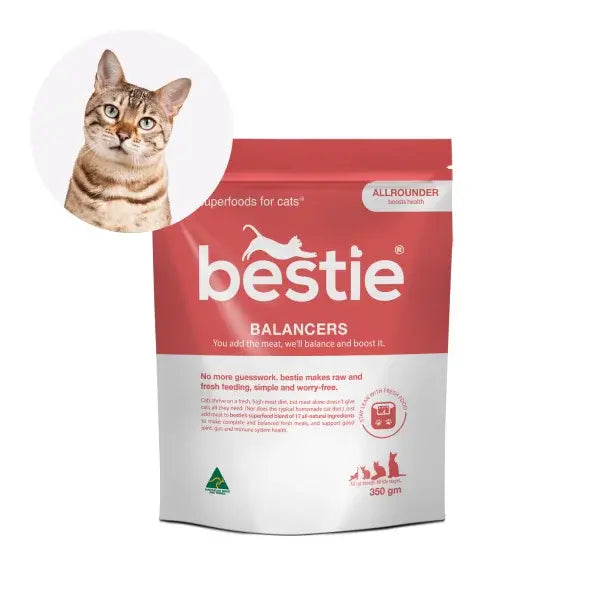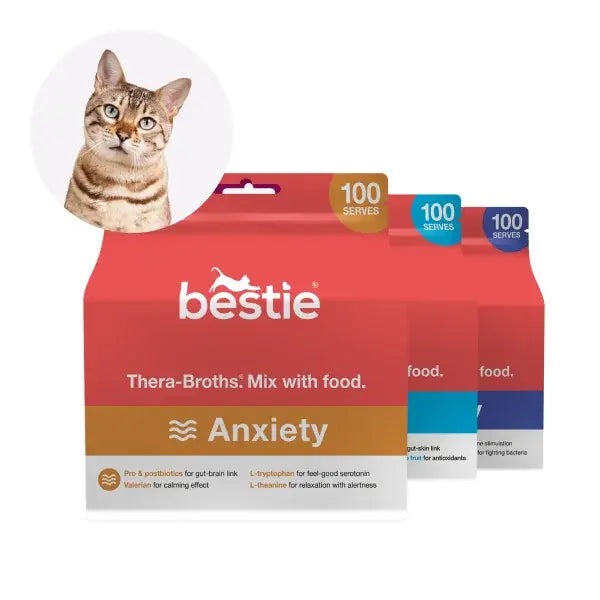In a nutshell:
-
Many age-related issues in dogs are associated with oxidative stress.
-
Oxidative stress occurs when there is an imbalance between antioxidants and oxidants in the body.
-
Nutraceuticals for dogs containing antioxidants, minerals, and vitamins with immunomodulatory properties have been shown in many studies to benefit age-related health issues in senior dogs, particularly canine cognitive dysfunction, heart disease, and some forms of cancer. Bestie health jelly The Einstein is rich in antioxidants as is the bestie Allrounder balancer.
Did you know that dogs are living longer than ever? However, as they grow older, they have greater risks of developing age-related issues that can significantly affect their health and quality of life. Many of these age-related issues are caused (at least in part) by oxidative stress (OS). These issues include cognitive dysfunction, some forms of cancer, and heart disease.
There is growing evidence that OS significantly impairs organic function and plays a major role in the cause and development of several metabolic and cardiovascular diseases in veterinary medicine. Oxidative stress has also been implicated in the process by which some heavy metals (such as lead or cadmium), cause many disease conditions and toxicities in animals. 1
Oxidative Stress In Dogs
One of the products generated during metabolism is free radicals (also known as reactive oxygen species). The body of a healthy animal can neutralise the effects of free radicals with the help of internal antioxidant defenses. But when an imbalance between antioxidants and oxidants in the body happens, the production of free radicals exceeds the body’s capacity for organic combustion, which can eventually lead to oxidative stress.
Oxidative stress encompasses not only the rate of ROS production, but also the antioxidant system and the oxidative damage accumulated when the antioxidant system cannot keep up with ROS production.2
Overproduction of reactive oxygen species and free radicals beyond the cell’s intrinsic capacity to neutralise following xenobiotic (foreign body) exposure leads to a state of oxidative stress and resultant damages of lipids, protein, and DNA.3
Reactive oxygen species (ROS) have harmful effects on the cell, the most affected of which is the cell membrane. Lipid oxidation can cause changes in the structure and permeability of the cell membrane.
A study that evaluated the ability of a long-term antioxidant-supplemented diet to regulate the oxidative stress and general health status of dogs involved in animal-assisted intervention (AAI) programs showed that damage caused by oxidative stress before and after their work was prevented. 4
Oxidative Stress And Ageing
The oxidative stress theory of ageing puts forward that “age-associated reductions in physiologic functions are caused by a slow steady accumulation of oxidative damage to macromolecules, which increases with age and which is associated with life expectancy of organisms.”5
Oxidative damage in both the human and canine brain significantly increases with age. Oxidative damage can lead to neuronal dysfunction in the brain due to modifications to proteins, lipids and DNA/RNA.
Researchers have found a correlation between an increase in the oxidative end products in the brain of aged dogs and the severity of behaviour changes associated with cognitive dysfunction.6
Scientists believe that the rate of ageing can be slowed down by reducing oxidative damage. Genetic manipulation and caloric restriction have been demonstrated to reduce oxidative stress and increase life expectancy.
Caloric Restriction (CR)
When the intake of calories is restricted, it can lead to weight loss. This means there is less energy needed to maintain the reduced body mass. With the reduction in the body’s metabolic rate, experts hypothesize the calorie restriction could extend lifespans by decreasing the rate of free radical damage.7
CR reduces metabolic rate and oxidative stress, improves insulin sensitivity, and alters neuroendocrine and sympathetic nervous system function in animals.8
There is evidence to suggest that caloric restriction without malnutrition has neuroprotective effects, including reduction of oxidative stress, increased production of brain-derived neurotrophic factor, improvements in mitochondrial function and metabolic efficiency, reduction in apoptosis, and improvements in glucose metabolism of the brain.9
Nutraceuticals And Ageing
Research studies, both in vitro and in vivo, demonstrate how antioxidant-rich nutraceuticals benefit geriatric dogs. Experts believe that an age-related decline in cognitive dysfunction may be mitigated through dietary modifications that include specific nutraceuticals.
A study on ageing beagles given a diet rich in antioxidants was shown to improve cognition, maintained cognition and reduced oxidative damage and Aβ (beta amyloid which is an abnormal type of protein) pathology in treated animals.10
Many nutraceutical products that are currently available for dogs include a combination of antioxidants, minerals, and vitamins. Studies have demonstrated that the use of a combination of nutraceuticals significantly improved a number of cognitive dysfunction syndrome- associated signs in aged dogs.11
Bestie Kitchen has an antioxidant-rich nutraceutical health booster specifically targeting cognitive dysfunction, The Einstein. The Einstein contains l-carnitine, vitamin E and C in vet-formulated clinical daily doses, and is designed to help reduce disturbed behaviour and improve quality of life, as your dog ages.
The bestie Allrounder balancing supplement, that’s added to fresh meat to make a complete and balanced meal is also high in antioxidants with an ORAC of 1700 ummol/100g.
Oxidative Stress And Cardiovascular Disease
Nowadays, approximately 10% of dogs have heart troubles.12Inflammation and oxidative stress are important factors that can contribute to the development and progression of heart disease in dogs.
When dogs have heart failure, there is a defect in the oxygenation and metabolism of the cell. This can lead to the production of a large amount of free radicals that cause major cellular damages known as oxidative stress.
Coenzyme Q10
Coenzyme Q10 is necessary for generation of ATP which is the energy currency of the cell. It also possesses antioxidant properties. It works by scavenging free radicals and regenerating the active form of other antioxidant molecules.13
A study on dogs with mitral valve disease showed that the nutraceutical CoQ10 improve cardiac function particularly the improvement of systolic function.14
Vitamin E And Selenium
Vitamin E is a fat-soluble vitamin with antioxidant properties. As an antioxidant, vitamin E has a role in the cellular barrier against oxidant molecules that are products of oxidative stress. When vitamin E levels in the body are insufficient to combat oxidants, the enzyme glutathione peroxidase takes over to neutralise the oxidant molecules. Selenium is a main cofactor of glutathione peroxidase.
Polyphenols
Polyphenols15 are micronutrients that naturally occur in plants. There are more than 8,000 types of polyphenols, which include:
- Flavonoids like quercetin and catechins in fruits
- Polyphenolic amides like capsaicinoids in chili peppers
- Phenolic acids like lignans and stilbenes in vegetables and whole grains
- Others like resveratrol in red wine and ellagic acid in berries
Among the properties of polyphenols, the immunomodulatory property has gained significant importance because of the role that it plays in immune system integrity and function.
In a study on rats given green tea polyphenol orally, results showed that polyphenols can protect the heart from oxidative stress and help maintain good left ventricular function after ischemic arrest and reperfusion. The results of this study were replicated in several research investigations both in vivo and in vitro trials.16
List Of References:
-
Rodriguez CC et al, 2011. Oxidative Stress In Veterinary Medicine. Volume 2011. Article ID 812086
- Selman C Blount J.D., Nussey D.H., Speakman J.R. (2012). Oxidative damage, ageing, and life-history evolution: where now? Trends Ecol Evol 27, 570–577. pmid:22789512
- Patra R.C., et al. 2011. Oxidative Stress In Lead And Cadmium Toxicity And Its Amelioration. Volume 2011. Article ID 457327
- Sechi S., et al. 2017. Oxidative Stress And Food Supplementation With Antioxidants In Therapy Dogs. Can J Vet Res. 2017 Jul; 81(3): 206–216.
- Michael T. Lin and M. Flint Beal. 2003. The Oxidative Damage Theory Of Aging. Clinical Neuroscience Research, Volume 2, Issues 5–6, January–February 2003, Pages 305-315
- Rofina J. E. et al. 2004. Histochemical Accumulation Of Oxidative Damage Products Is Associated With Alzheimer-Like Pathology In The Canine. PMID: 15478464 DOI: 10.1080/13506120412331285779
- Grabski, Isabella. 2020. Can Calorie Restriction Extend Your Lifespan? .Harvard Accessed 04 October 2021. < https://sitn.hms.harvard.edu/flash/2020/can-calorie-restriction-extend-your-lifespan/>
- Heilbronn L.K. and Ravussin, E. 2003. Calorie Restriction And Aging: Review Of The Literature And Implications For Studies In Humans. The American Journal of Clinical Nutrition, Volume 78, Issue 3, September 2003, Pages 361–369, https://doi.org/10.1093/ajcn/78.3.361
- Maalouf M. et al. 2009. The Neuroprotective Properties Of Calorie Restriction, The Ketogenic Diet, And Ketone Bodies. Brain Research Reviews Volume 59, Issue 2, March 2009, Pages 293-315
- Dowling A.L.S. and Head, E. 2011. Antioxidants In The Canine Model Of Human Aging. Biochim Biophys Acta. 2012 May; 1822(5): 685–689.
- Heath SE, Barabas S, Craze PG. Nutritional supplementation in cases of canine cognitive dysfunction—a clinical trial. Appl Anim Behav Sci2007;105:284–296.
- Sagols E and Priymenko N. 2011. Oxidative Stress In Dog With Heart Failure: The Role Of Dietary Fatty Acids And Antioxidants. Vet Med Int. 2011; 2011: 180206. doi: 10.4061/2011/180206.
- Weant KA, Smith KM. The role of coenzyme Q10 in heart failure. Annals of Pharmacotherapy.2005;39(9):1522–1526.
- Tachampa K et al. 2018. Effects Of Coenzyme Q10 Supplementation On Cardiac Troponin I Level, Heart Rate Variability, And Echocardiographic Profiles In Canine With Myxomatous Degenerative Mitral Valve Disease: A Pilot Study. Thai Journal of Veterinary Medicine. Volume 48, Issue 3, 1 September 2018, Pages 443-452.
- Healthy Foods High In Polyphenols. webmd.com. Accessed 10 October 2021. < https://www.webmd.com/diet/foods-high-in-polyphenols#1
- Miwa S et al. 2004. A Novel Method Of ‘Preparative’ Myocardial Protection Using Green Tea Polyphenol In Oral Uptake. Interactive CardioVascular and Thoracic Surgery, Volume 3, Issue 4, December 2004, Pages 612–615, https://doi.org/10.1016/j.icvts.2004.06.013


